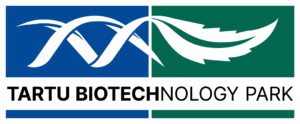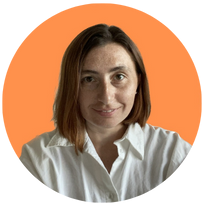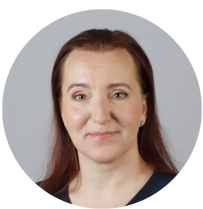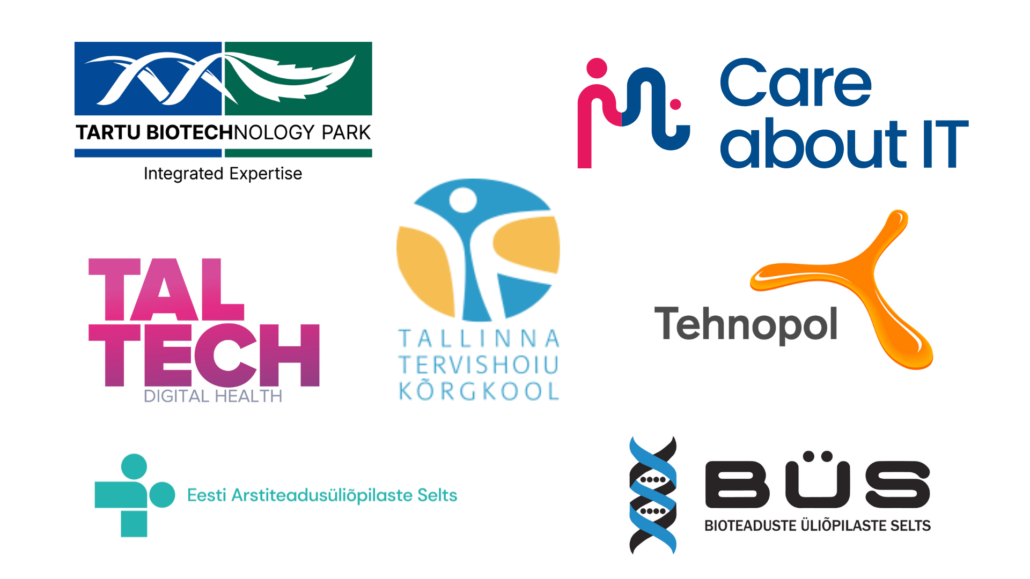Tartu i-Days x Care About IT 2024 | 1-2 November
Calling all aspiring innovators and creative thinkers passionate about health and biotechnology! Take part in our two-day hackathon and put your problem-solving and teamwork skills to the test!
💡Do you have a challenge idea related to health or biotechnology? If you’re a company or organization facing a problem in these areas, we want to hear from you! Submit your challenge for the hackathon here.
🌍 Join the 7th edition of Tartu i-Days – An international hackathon experience!
From 1-2 November 2024 Tartu i-Days x Care About IT, an international student hackathon will take place for the 7th time! This time, the hackathon will take place in partnership with Care About IT, a project aimed at developing the digital competence of health professionals. During the hackathon, teams of 3-6 spend two days guided by experts to develop and validate solutions to real-life health and biotechnology challenges.
You may come up with an idea and pre-formed team, but you may also just bring your passion to learn, and join one of the teams on site!
Participants are introduced to practical innovation tools such as design thinking and pitch training.
🏆 Compete for a spot on the European stage
The winning team of i-Days will attend the Winners’ Event, a final competition that unites students from around Europe. I-Days 2024 Winners’ Event takes place on 28-29 November in Budapest, Hungary (the prize will cover the travel- and accommodation costs for up to 4 team members).
Additionally, the winning team will advance to the second-round international hackathon, Care About IT, taking place in spring 2025.
What would you gain from attending the event?
🚀New skills to create solutions to real-life challenges
🚀Network of like-minded people
🚀i-Days certificate that will be a great addition to your CV
🚀Prizes from EIT Health and other partners
🚀 The winning team will get a chance to represent Estonia at the European finals in Budapest, Hungary on 28-29 November.
🚀The winning team will advance to the second-round international hackathon, Care About IT, taking place in spring 2025.
🎓 Who Should Apply?
i-Days x Care About IT 2024 is accessible to all undergraduate and postgraduate students as well as healthcare workers with an interest in healthcare and biotech innovation. You do not need prerequisite skills or prior experience in innovation, entrepreneurship or healthcare. There are no academic requirements and students from all disciplines and departments are welcome to join!
AGENDA
Day 0 | 25 October 2024
15:30-16:30
Pitching Workshop for the hackathon participants (online)
- During the workshop, we’ll cover essential pitching skills, provide details about the hackathon challenges, and discuss the judging criteria and mentorship. This will be a valuable opportunity to prepare for the main event.
- All registered participants will receive the meeting link via email before the event.
Day 1 | 1 November 2024
14:00-14:30
Arrival & Networking Over Coffee
- Kick off the event with casual networking and refreshments. Meet fellow innovators and future teammates
14:30-14:50
Welcome & Opening Remarks
- Welcome by the event moderator
- An overview of the hackathon’s mission and bold theme
- Explanation of rules, judging criteria, awards, and schedule
- Meet your mentors – your guides for the next two days
14:50-15:00
Spotlight on EIT Health
- A snapshot of EIT Health’s role in transforming healthcare innovation
15:00-15:20
Keynote Kickstart – Kristiina Sepp (Health Technology and Services Focus Area Manager at Estonian Business and Innovation Agency) – “The Future of Health Innovation”
- Hear from an inspiring thought leader on how innovation is shaping the future of health and care
15:20-15:40
Team Formation & Icebreaker
- Get to know your fellow innovators with a fun, interactive icebreaker
- Form dynamic teams that will collaborate to solve real-world challenges
15:40-16:30
Challenge Presentation
- Ready, set, innovate!
16:30-16:45
Coffee & Snacks
16:45-18:15
Design Thinking Bootcamp Part I – Helen Minařík (Product Design Coach)
- Dive deep into the design thinking methodology – learn how to turn ideas into actionable solutions
18:15-19:15
Mentor Consultations: Mentor Speed-Dating
- Quick, intense 5-minute sessions with mentors to collect rapid feedback
19:15-22:00
Brainstorm & Innovate!
- Let creativity flow as teams brainstorm solutions and start building concepts. Innovation goes late into the night!
Day 2 | 2 November 2024
08:30-09:00
Fuel Up with Morning Coffee
- Start the day with fresh energy and caffeine
09:00-09:10
Day 1 Recap & What’s Ahead
- A quick recap of yesterday’s progress and what to expect on the final day
09:10-09:30
Keynote Inspiration: Madis Päev (Head of Business Development at 7Sense) – “The challenges and joys of f bringing innovation to market”
- Another dose of motivation from a trailblazer in the world of health innovation
09:30-11:00
Design Thinking Bootcamp Part II
- Continue shaping your ideas into groundbreaking solutions
11:00-12:00
Mentor Rounds & Teamwork
- Dive into feedback sessions with mentors to sharpen your solutions
12:00-12:30
Fuel Up with Lunch
- A break to recharge, refuel, and prepare for the final stretch
12:30-13:00
Pitching Workshop
- Get final tips on crafting compelling pitches that impress the judges
13:00-14:30
Final Sprint: Teamwork & Mentor Check-ins
- Time to finalize your ideas and pitches with support from mentors. Make every minute count!
14:30
Coffee & Cake
- Recharge before the big presentations
15:00-17:00
Pitch & Win!
- Present your ideas to the judges
- Compete for amazing prizes and celebrate your hard work and innovation
Challenges
1. 3N implementation program
Description: A 3N unification app or program is needed to save valuable time in clinical settings to reduce malfunctions. Implementing programs increases work efficiency and quality.
Problem: Data is shattered in multiple places which increases nurse’s workload and time.
Solution: 3N unification in an app or program that nurses can select and record nursing diagnoses (Nursing Intevention Classification and Nursing Outcomes Classification).
2. Medicine administration application
Description: Drug administration app that contains information ensuring the safety of the patient in the use of medicines.
Problem: Lack of safety while patients administrating medicines.
Solution: Drug administration app, where medicines can be found by the name of the active ingredient or brand/trademark. Application will outline, how to use and administer the medicine and give an overview of side effects and interactions with other drugs.
3. Hospital guide app for easier orientation in the hospital
Description: As existing hospital direction signs confuse patients/clients, an app or an AI solution would help visitors to orientate better.
Problem: Patients are getting lost in the hospital with existing direction signs.
Solution: Application or AI solution that helps hospital patients to orientate around the hospital.
4. Operating room planning application
Description: Hospital workers plan their operating room work, establish surgery plans, and monitor them and the patients involved. This routine needs an IT solution for better planning.
Problem: Hospital operating room work planning is unmodernized and inaccessible to needed employees.
Solution: An IT solution to plan seamlessly hospital operating rooms occupation and surgery plans.
5. IT solution for ED workload traceability
Description: An IT solution is needed for ED department traceability, which would be able to show patients how many patients are currently in the ED, with what degrees of severity and how many medical workers are available for them.
Problem: Patients do not have an overview of the workload of the ED department.
Solution: An IT solution for ED patients to monitor department workload (number of patients, degrees of severity, number of current workers).
6. Planning and monitoring nursing interventions through an IT solution
Description: For safer planning and monitoring of nursing interventions, an IT solution is needed for nurses to remind the them time when medicine administrating or procedure is approaching and provide their characteristics.
Problem: Procedures and medicine administrations are done incorrectly by nurses and accordingly would not be safe for patients.
Solution: App or program that helps nurses to plan and monitor their patient’s procedures and medication administrations safely. The solution reminds nurse about drug administration or procedure times and provides their characteristics.
7. Developing Digital Competences for Estonia’s Healthcare Workforce
Description: Starting in 2025, a strategy and action plan for developing the digital competencies of the healthcare workforce in Estonia will be implemented. This strategy was developed between 2023 and 2024 as part of a joint project between Catalonia and Estonia titled “Improving digital competencies of the health workforce in Spain and Estonia.” In this same project, an initial list of digital competencies was created, outlining the competencies that healthcare professionals are expected to acquire. The healthcare workers were profiled for the list as follows:
- Healthcare specialists – doctors, nurses, midwives, psychologists, physiotherapists, etc. This profile includes professionals who are directly involved in patient care.
- Other healthcare professionals – managers, healthcare analysts, etc. This profile includes professionals who work in administrative positions in healthcare and are not directly involved in patient care.
We aim for the basic level of digital competence among the healthcare workforce in Estonia to be standardized, and for them to acquire the competencies outlined in the list. Several challenges are associated with this aim, which will be addressed through the strategy’s action plan starting in 2025, requiring thorough preparation, input, and innovative solutions. We highlight two of these challenges below.
Solution 1: Creation of a digital competence assessment test. We need a digital competence assessment test aligned with the list of competencies, which would direct the healthcare workforce to specific training courses based on their test results.
Solution 2: Provide an overview of healthcare workers’ digital competencies to various stakeholders. We need a process and a channel to share information between the Health Board, universities, healthcare service providers, and other key stakeholders. This would showcase the level of digital competence of healthcare workers, including the certificates they have earned and the exact training they have completed. We can share all relevant project reports and key outcomes (the strategy and action plan, digital competence profiles with the list of competencies, etc.).
8. Innovative approach involving technology to alleviate children’s pain during various painful procedures (e.g. blood sampling)
Description: The challenge of this hackathon is to find innovative technological solutions that can help reduce pain and stress in children during various painful procedures, while also providing a safe and efficient way for healthcare professionals.
Problem: Children often experience severe pain and fear during medical procedures such as blood draws, injections and similar processes. Current solutions, such as the use of local anaesthetics or distraction with toys, may not always be sufficient to reduce the discomfort caused to the child. Procedures may also become more difficult if the child moves or protests. Reducing pain and fear would greatly improve the experience for the child and his/her family and make the work of medical staff easier.
Solution: Use technology to create a solution that helps children experience less pain and stress during painful medical procedures. Possible solutions could include the use of virtual reality (VR) and augmented reality (AR) technologies to distract the child from the procedure, the use of biofeedback devices to help the child control their breathing and stress levels, or new non-invasive devices to reduce pain during the procedure. The solution is designed to be fun, accessible and effective, while also allowing healthcare professionals to carry out the procedures smoothly.
9. CyberWiseSpace
Description: How to make health data accessible for researchers/startups You have access to your personal data, according to GDPR can request it from a hospital or TEHIK (I actually encourage students to do that and see real data). You will receive a bunch of XML files. But what can you do next with this data? On the other side are researchers/startups who need data (maybe even data you have). How did you two meet each other? Also, we need to figure out what kind of data they need (e.g. interviews or surveys with startups).
Solution: The challenge is to find/create possibilities (create concept) for secure de-identified data sharing and easy access for researchers/startups.
10. Reducing Disease Outbreaks Through Awareness and Understanding Vaccine Hesitancy
Description: The issue of disease outbreaks linked to declining immunisation.
Solutions: There are two ways of approaching this issue. The first is to tackle the problem in such a way that people immunise themselves and the chances of outbreaks are reduced. The second option is to find the reason why people are reluctant to be immunised. Once the cause is clear, it can be addressed and the situation should improve in the next 10 years.
11. Combating Antibiotic Resistance: Reducing Antibiotic Use and Exploring Innovative Alternatives for Global Health
Descritption: Antibiotic-resistant bacteria are a growing problem. Resistance mutations usually occur when the microbe’s environment is below the lethal concentration of the antibiotic and the cell has time to adapt. The largest sectors for the use of antibiotics are in agriculture, in order to increase productivity. Medicine and human behaviour contribute to this.
Solution: There are many ways of approaching this problem. Firstly, how to reduce the use of antibiotics, both in medicine and especially in agriculture (especially livestock farming). As the abandonment of antibiotics inevitably has an impact on productivity, the issue is extremely complex from the point of view of the world’s growing population. Secondly, to tackle the problem of creating new antimicrobials. An army of scientists is working on this every day when, unfortunately, nothing suitable has been found to date. Thirdly, we could try to propose solutions that would make it possible to do away with antibiotics altogether in the fight against bacterial infections. One potential approach is the use of bacteriophages, i.e. viruses that kill bacteria. This approach also has a number of bottlenecks, ranging from how the organism reacts to the virus to how the virus evolves when used en masse.
12. Real-time monitoring of patients’ fluid balances
Description: Fluid balance monitoring is particularly critical for hospitalized patients whose health status requires continuous monitoring. Currently, it is difficult for nurses and doctors to accurately assess how much fluid a patient has consumed, when it was consumed, what was consumed and the amount of fluid that was excreted. This makes it difficult to assess the patient’s condition and implement timely and appropriate treatment.
Problem: Traditional fluid balance monitoring requires manual documentation of the patient. This method is inaccurate and can lead to errors in the assessment of the patient’s condition. It is often not known when and how much fluid the patient has consumed or excreted, which can influence treatment decisions, especially in critically ill patients. The current system is time-consuming and does not provide a real-time overview of a patient’s fluid intake and output. This leads to a situation where the patient may miss out on necessary fluid balance interventions, which can lead to serious health risks such as fluid deficiency, oedema or electrolyte imbalances.
Solution: A monitoring system that can monitor a patient’s fluid balance in real-time and automatically transmit the data to the hospital information system.
13. Mobile resuscitation equipment
Description: The effectiveness of the emergency response can be critical to patient survival and recovery. Rapid access to ambulance brigades is critical, but during peak hours or in remote areas, assistance may take time to arrive. In these situations, mobile resuscitation tools must be available that can reduce the time waiting for life-saving intervention.
Problem: Delays in ambulance brigade can significantly reduce a patient’s chance of survival, especially in cases of sudden death such as cardiac arrest. In remote or inaccessible areas, it can be a challenge to ensure timely access to resuscitation equipment. In addition, large crowds or traffic congestion in an urban environment during peak hours may hinder the rapid arrival of an ambulance. When such an accident occurs, ordinary people are often at a loss as to how to help until professional medical assistance arrives.
Solution: Developing and deploying mobile resuscitation equipment in strategic locations will help shorten the time it takes to start the resuscitation process. The devices would be easily transportable and simple to use.
Facilitators
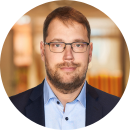 Vaido Mikheim (MODERATOR/PITCHING COACH) – As a lifelong sci-fi fan Vaido trusts that the combination of humans, science, and tech is the path to sustainable prosperity. For the last decade Vaido lives and breathes the startup scene in Estonia. He’s eager to talk about transition from science to business, and how to enable it. Today he pioneers Estonian deep tech startup ecosystem onwards as Deep Tech Project Lead at Startup Estonia.
Vaido Mikheim (MODERATOR/PITCHING COACH) – As a lifelong sci-fi fan Vaido trusts that the combination of humans, science, and tech is the path to sustainable prosperity. For the last decade Vaido lives and breathes the startup scene in Estonia. He’s eager to talk about transition from science to business, and how to enable it. Today he pioneers Estonian deep tech startup ecosystem onwards as Deep Tech Project Lead at Startup Estonia.
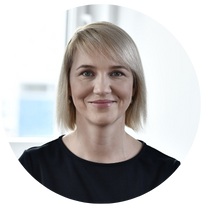 Kristiina Sepp (SPEAKER) is the head of the health technologies and services focus area at the Estonian Business and Innovation Agency. Health technology and services are one of Estonia’s focus areas in the next 12 years. Kristiina has 20 years of experience in the healthcare sector and, mainly in the community pharmacy field, developing community pharmacy services, e.g., remote care, Internet pharmacy, and new care models.
Kristiina Sepp (SPEAKER) is the head of the health technologies and services focus area at the Estonian Business and Innovation Agency. Health technology and services are one of Estonia’s focus areas in the next 12 years. Kristiina has 20 years of experience in the healthcare sector and, mainly in the community pharmacy field, developing community pharmacy services, e.g., remote care, Internet pharmacy, and new care models.
 Sven Parkel (MENTOR/JURY MEMBER) is the General Secretary of the ScanBalt network, which builds and supports the health tech ecosystem in the Baltic Sea Region. He also is the General Manager of the Tartu Biotechnology Park (TBP). His work in TBP supports local businesses and startups in health tech, biotechnology and other areas offering opportunities through project funding through the EU and business development in an incubation program.
Sven Parkel (MENTOR/JURY MEMBER) is the General Secretary of the ScanBalt network, which builds and supports the health tech ecosystem in the Baltic Sea Region. He also is the General Manager of the Tartu Biotechnology Park (TBP). His work in TBP supports local businesses and startups in health tech, biotechnology and other areas offering opportunities through project funding through the EU and business development in an incubation program.
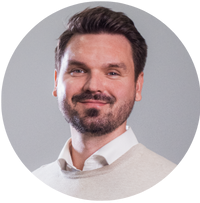 Madis Päev (SPEAKER/JURY MEMBER) is the head of business development at 7Sense – an Estonian deep-tech startup developing the telehaptic sight technology, the first of its kind, designed to assist individuals with visual impairments. With over 6 years of experience in marketing and sales, Madis specializes in crafting and executing robust go-to-market strategies that drive growth and success. His expertise spans the insurance, business administration, and health-tech industries.
Madis Päev (SPEAKER/JURY MEMBER) is the head of business development at 7Sense – an Estonian deep-tech startup developing the telehaptic sight technology, the first of its kind, designed to assist individuals with visual impairments. With over 6 years of experience in marketing and sales, Madis specializes in crafting and executing robust go-to-market strategies that drive growth and success. His expertise spans the insurance, business administration, and health-tech industries.
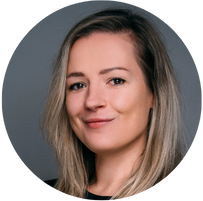 Helen Minařík (DESIGN THINKING COACH) – For the past 20 years, I have been actively involved in the design industry through various roles as a graphic designer and UI/UX specialist. I have been fascinated by visual design for as long as I can remember. I have been scribbling, drawing, illustrating, and doodling since I could hold a pen (or a crayon). There was no doubt in my mind that this was what I wanted to do in my life. This fascination for design was accompanied by a sense of curiosity. All children are by nature curious. Even after growing up, I retained that sense of childlike curiosity through my profession. I got a formal education in graphic design, and when I came out of university, the technology boom was in full swing. I quickly became involved with the startup scene in Estonia, and I immediately realized that no one was talking about the importance of UI and UX. That niche became a mission. I quickly became a flagbearer for UI/UX design in Estonia. In the past 20 years, I have had numerous awards both in the public and private sectors. The highlight has been my collaboration with Google, where I built a UI / UX ecosystem in Kampala, Uganda. I have also been a mentor to numerous startups across the globe in more than 60 different countries.
Helen Minařík (DESIGN THINKING COACH) – For the past 20 years, I have been actively involved in the design industry through various roles as a graphic designer and UI/UX specialist. I have been fascinated by visual design for as long as I can remember. I have been scribbling, drawing, illustrating, and doodling since I could hold a pen (or a crayon). There was no doubt in my mind that this was what I wanted to do in my life. This fascination for design was accompanied by a sense of curiosity. All children are by nature curious. Even after growing up, I retained that sense of childlike curiosity through my profession. I got a formal education in graphic design, and when I came out of university, the technology boom was in full swing. I quickly became involved with the startup scene in Estonia, and I immediately realized that no one was talking about the importance of UI and UX. That niche became a mission. I quickly became a flagbearer for UI/UX design in Estonia. In the past 20 years, I have had numerous awards both in the public and private sectors. The highlight has been my collaboration with Google, where I built a UI / UX ecosystem in Kampala, Uganda. I have also been a mentor to numerous startups across the globe in more than 60 different countries.
 Riina Hallik, MSc, MMS, RN (MENTOR) is a dedicated healthcare enthusiast whose focus is currently on analyzing work processes, evaluating digital health solutions and adapting patient-reported outcome instruments and experience measures. Riina‘s passion is to combine a (scientific approach and innovation in digital health. She has had a varied career over 12+ years in national and international research projects, development of several digital health SMEs and mentoring start-ups. She is a recognized lecturer, member of the Health Development Institute (TAI) ethics committee, master thesis supervisor and author of scientific articles focusing mostly on telemedicine, as well as an international expert in the development of digital medical device evaluation framework for Europe.
Riina Hallik, MSc, MMS, RN (MENTOR) is a dedicated healthcare enthusiast whose focus is currently on analyzing work processes, evaluating digital health solutions and adapting patient-reported outcome instruments and experience measures. Riina‘s passion is to combine a (scientific approach and innovation in digital health. She has had a varied career over 12+ years in national and international research projects, development of several digital health SMEs and mentoring start-ups. She is a recognized lecturer, member of the Health Development Institute (TAI) ethics committee, master thesis supervisor and author of scientific articles focusing mostly on telemedicine, as well as an international expert in the development of digital medical device evaluation framework for Europe.
 Ali Ghasempour (MENTOR) is a cybersecurity expert with over a decade of experience in various industries. He holds a joint master’s degree in cybersecurity from Tallinn University of Technology and Tartu University, along with another master’s from Universiti Putra Malaysia. At TalTech, Ali lectures on cybersecurity and logging and monitoring, bringing practical expertise as a system administrator. Recognized by the IEEE Computer Society as one of the top 20 engineers under 30, he is also the CEO and co-founder of CyberWiseSpace, an Estonian company that protects businesses from cyber threats and ensures privacy compliance.
Ali Ghasempour (MENTOR) is a cybersecurity expert with over a decade of experience in various industries. He holds a joint master’s degree in cybersecurity from Tallinn University of Technology and Tartu University, along with another master’s from Universiti Putra Malaysia. At TalTech, Ali lectures on cybersecurity and logging and monitoring, bringing practical expertise as a system administrator. Recognized by the IEEE Computer Society as one of the top 20 engineers under 30, he is also the CEO and co-founder of CyberWiseSpace, an Estonian company that protects businesses from cyber threats and ensures privacy compliance.Areas of Expertise: Cybersecurity Strategy; Operating Systems; Systems Administration; Education; Cybersecurity Consulting; Leadership
 Maarja-Liis Elland (MENTOR) is an e-health analyst with a background in neurological physiotherapy. She has been working in the healthcare field for 12 years and contributed to a wide range of projects, covering topics from stroke management and dementia care to remote health services and digital competencies. Maarja-Liis holds a master’s degree in Health Care Technology (Digital Health) and is passionate about combining her healthcare expertise and scientific knowledge to enhance patient outcomes. She also enjoys writing and exploring innovative ideas.
Maarja-Liis Elland (MENTOR) is an e-health analyst with a background in neurological physiotherapy. She has been working in the healthcare field for 12 years and contributed to a wide range of projects, covering topics from stroke management and dementia care to remote health services and digital competencies. Maarja-Liis holds a master’s degree in Health Care Technology (Digital Health) and is passionate about combining her healthcare expertise and scientific knowledge to enhance patient outcomes. She also enjoys writing and exploring innovative ideas.
Areas of Expertise: Research and methodological planning; project management; content development; process analysis
 Kadi Lubi (MENTOR/JURY MEMBER) – Kadi (PhD, MA, licenced pharmacist) is a senior researcher and the head of the Centre for Digital Health at TalTech. She holds master’s degrees in pharmacy and communication management and a doctoral degree in media and communication. Her doctoral thesis focused on information-seeking strategies during chronic illness. Her research interests are related to the areas of medical sociology, health communication, health policy, and change management with a particular focus on the aspects that influence people’s health-related decisions. She’s a member of the European Sociological Association and the International Association for Communication in Healthcare.
Kadi Lubi (MENTOR/JURY MEMBER) – Kadi (PhD, MA, licenced pharmacist) is a senior researcher and the head of the Centre for Digital Health at TalTech. She holds master’s degrees in pharmacy and communication management and a doctoral degree in media and communication. Her doctoral thesis focused on information-seeking strategies during chronic illness. Her research interests are related to the areas of medical sociology, health communication, health policy, and change management with a particular focus on the aspects that influence people’s health-related decisions. She’s a member of the European Sociological Association and the International Association for Communication in Healthcare.Areas of Expertise: Pharmaceutical industry; health communication; medical sociology; change management
Liina Harjus-Soostar (MENTOR/JURY MEMBER) is the Head of Nursing and Patient Experience at Tallinn Children’s Hospital with a passion for innovation and modern healthcare. In addition, she teaches at Tallinn University and instructs at the Rescue College of Sisekaitseakadeemia, sharing her knowledge with future rescue professionals. Her Master’s degree in e-health gives her a thorough background in the development and implementation of health technologies.
Eva Raba (MENTOR) has worked in the health sector for 25 years. She is currently the Head of Nursing at the Surgery Clinic at the West Tallinn Central Hospital. She has experience working in various areas of healthcare (intensive care, resuscitation, family practice, prison service) and has also worked as a sales representative and product specialist in a company selling medical products.
 Jekaterina Šteinmiller (MENTOR) is a passionate healthcare expert with a doctorate in nursing. She collaborates globally with practitioners, educators, policymakers, and healthcare innovators to create optimal solutions for improving patient well-being and health outcomes. Jekaterina has led multiple international projects, authored and co-authored numerous scientific articles, and graduated in 2024 from TalTech’s master’s program in e-Health.
Jekaterina Šteinmiller (MENTOR) is a passionate healthcare expert with a doctorate in nursing. She collaborates globally with practitioners, educators, policymakers, and healthcare innovators to create optimal solutions for improving patient well-being and health outcomes. Jekaterina has led multiple international projects, authored and co-authored numerous scientific articles, and graduated in 2024 from TalTech’s master’s program in e-Health.
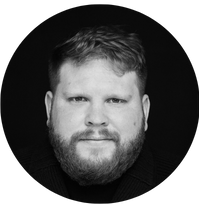 Kristo Peetris (MENTOR) is the head of nursing at the West Tallinn Central Hospital. Kristo has over 10 years of experience in emergency medicine. He’s an active member of the Estonian Rescue Rescue Team (EDRT) and has been on a humanitarian mission in Haiti. His strengths include good stress tolerance and the ability to think of solutions in difficult situations.
Kristo Peetris (MENTOR) is the head of nursing at the West Tallinn Central Hospital. Kristo has over 10 years of experience in emergency medicine. He’s an active member of the Estonian Rescue Rescue Team (EDRT) and has been on a humanitarian mission in Haiti. His strengths include good stress tolerance and the ability to think of solutions in difficult situations.
 Loora Salurand (JURY MEMBER) is a HealthTech Project Manager at Tehnopol Science and Business Park, where she leads EU-funded projects, including the DigiLung initiative to enhance COPD care with AI, and coordinates the Care About IT project,
Loora Salurand (JURY MEMBER) is a HealthTech Project Manager at Tehnopol Science and Business Park, where she leads EU-funded projects, including the DigiLung initiative to enhance COPD care with AI, and coordinates the Care About IT project,
fostering digital health innovation through hackathons. Previously, she worked with the Estonian Health Insurance Fund on public procurement and patient services and managed e-pharmacy operations at Euroapteek. A pharmacist by education, Loora has also her background in Digital Health master’s studies at Tallinn University of Technology.
 Martin Argus (JURY MEMBER) is a healthcare research and development enthusiast and educator focused on advancing pain management and physiotherapy. He holds a PhD from the University of Tartu, where his research centred on work-related pain issues. As a former board member of the Estonian Association of Physiotherapists, he contributed to establishing primary care physiotherapy as an independent speciality in Estonia. Currently, he works at Tallinn Health Care College, with the goal of elevating the college as a recognized research institution. He also teaches pain science at the University of Tartu and provides lectures and training on occupational health to organizations, helping create healthier work environments.
Martin Argus (JURY MEMBER) is a healthcare research and development enthusiast and educator focused on advancing pain management and physiotherapy. He holds a PhD from the University of Tartu, where his research centred on work-related pain issues. As a former board member of the Estonian Association of Physiotherapists, he contributed to establishing primary care physiotherapy as an independent speciality in Estonia. Currently, he works at Tallinn Health Care College, with the goal of elevating the college as a recognized research institution. He also teaches pain science at the University of Tartu and provides lectures and training on occupational health to organizations, helping create healthier work environments.
Powered by
Organised by
